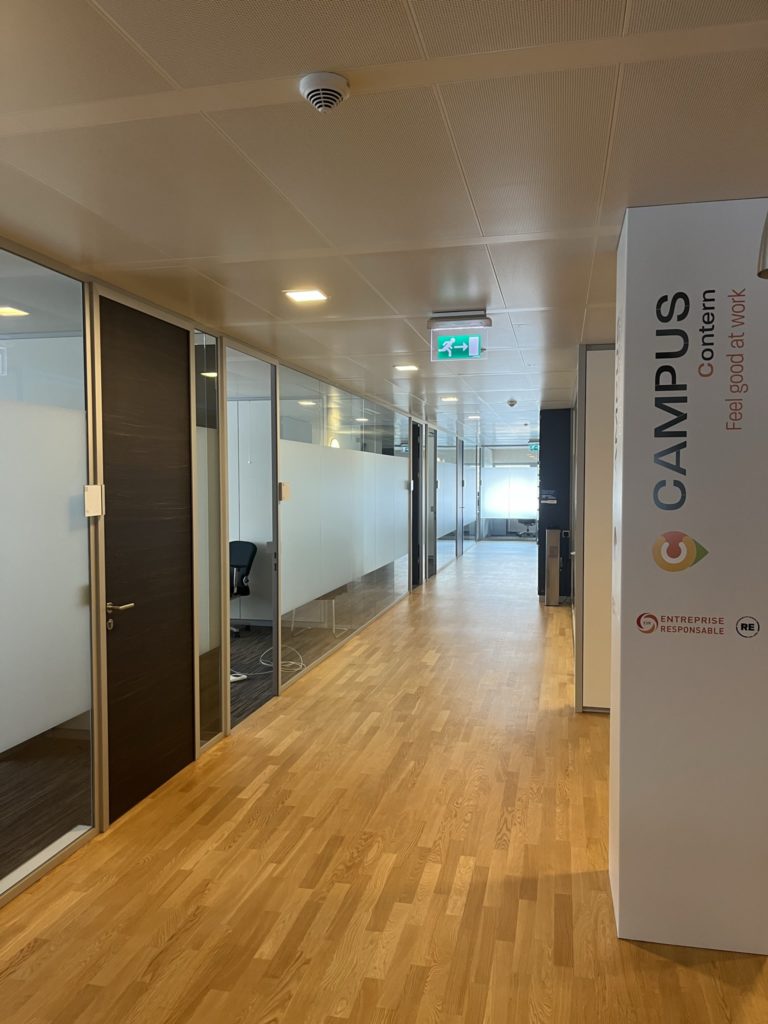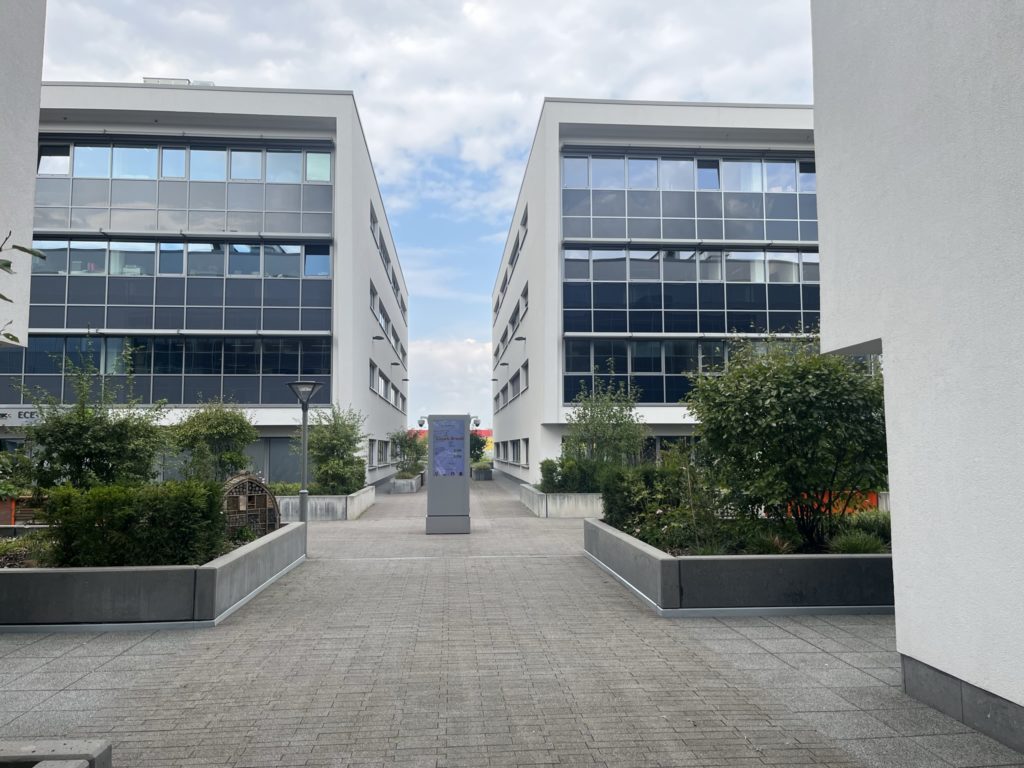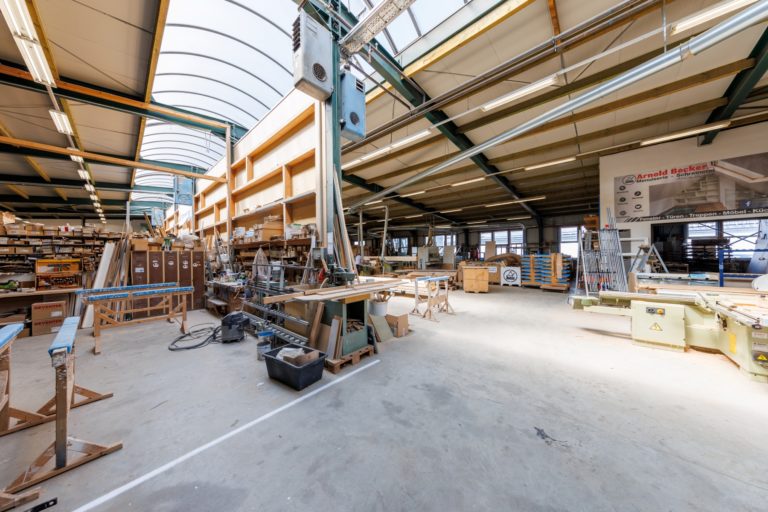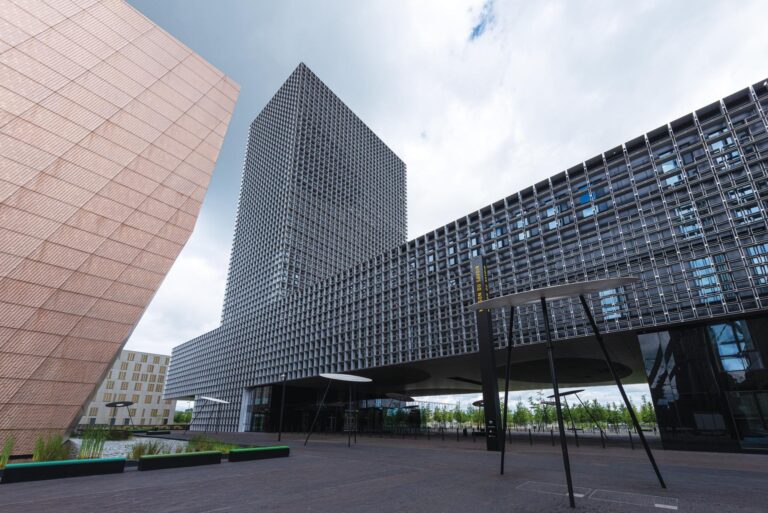Company profile
Campus Contern offers 16,000 m2 of office space for rent. There are five buildings in which around 450 people from 34 different companies work. The aim of Campus Contern is to provide innovative coworking spaces in terms of sustainable development and the well-being of their occupants. As a result, they have been awarded the BREEAM Excellent label, the CO2-neutral certificate (the first for any office building in Luxembourg) and CSR certification.
Idea
Optimisation of the building for improved energy efficiency.
Using a smart regulation system may allow to compare consumption on a daily/monthly basis and to optimise the use of equipment in order to reduce costs (and protect natural resources).
Optimising consumption on a building level:
- The natural heat provided by sunlight and the heat generated by the computer rooms throughout the building can be used to reduce the use of heating and air-conditioning.
- LED lighting has been upgraded with integrated occupancy sensors and smart meters to measure consumption and allow for remote preemptive maintenance.
Design
Smart heat utilisation
During the development phase of the site, Campus Contern introduced a clever technology: they reused the warm air from the southern areas and the IT rooms to heat the northern areas, thereby avoiding excessive use of air conditioning and heating. The plan then was to give occupants some flexibility to adjust the system to their liking, with a margin of +/- 2°C relative to the reference value. And when the windows are opened, the air conditioning or heating automatically switches to standby mode.
In terms of lighting, they introduced LED lights and equipped the common areas and parking spaces with occupancy sensors. The lighting in the outdoor car park, in turn, is controlled by a twilight sensor and smart scheduling.
The advantage of smart meters is that they collect a maximum of useful information for a detailed analysis of energy consumption. It is also possible to carry out efficient remote interventions, detect potential anomalies more quickly, optimise the installation and streamline maintenance.
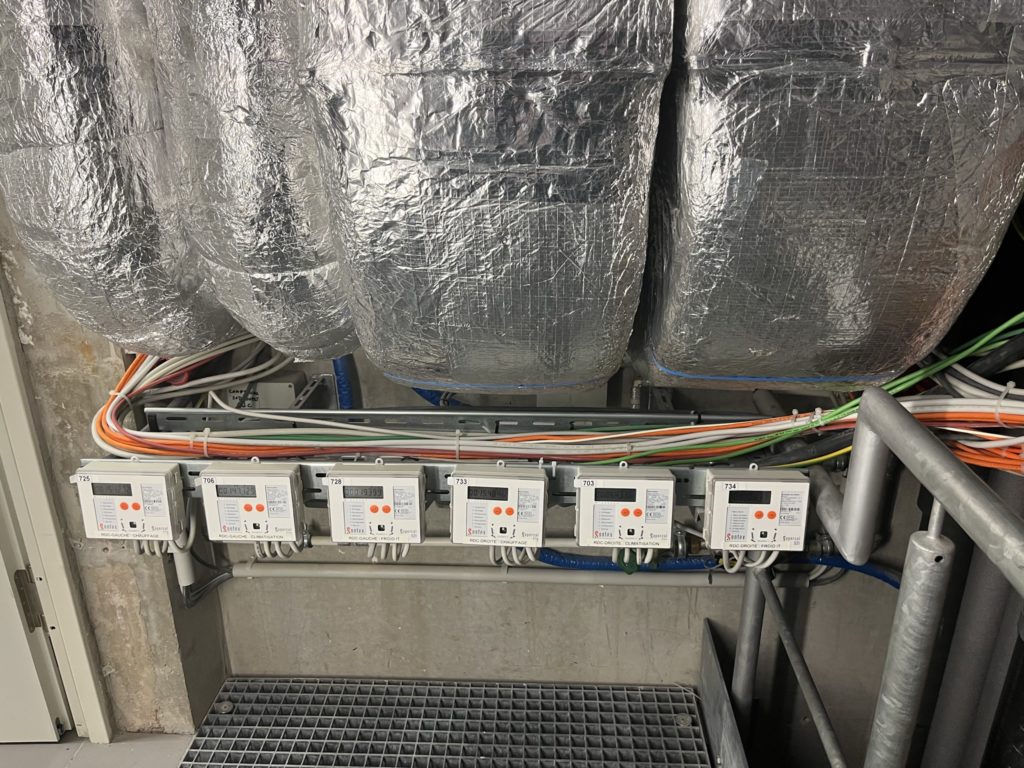
Implementation
Meticulous planning to minimise any disruption
Each project required meticulous planning, particularly with regard to the sequencing of work and the necessary controls.
The manager was responsible for coordinating the work of the various service providers and communicating with the tenants. Good planning and effective coordination were essential. Where access to private areas was required, it was essential to minimise any disruption, for example when replacing light fittings or installing meters.
Campus Contern planned most of the work over the weekend to minimise interference with working conditions and the confidentiality of everyone’s activities. Nevertheless, there were unforeseen incidents such as the adjustment of light fixtures, the adjustment of time-delays or the detection of malfunctions after the installation of sensors/meters (as it was not possible to perform the final inspection zone by zone over the weekend).
Result
More control means better management
With building intelligence, energy consumption can be made transparent and accurately tracked, which opens up the possibility of adjusting and optimising the parameters of all HVAC technology and luminaires. In addition to energy efficiency, this also ensures optimal comfort for the building’s occupants.
